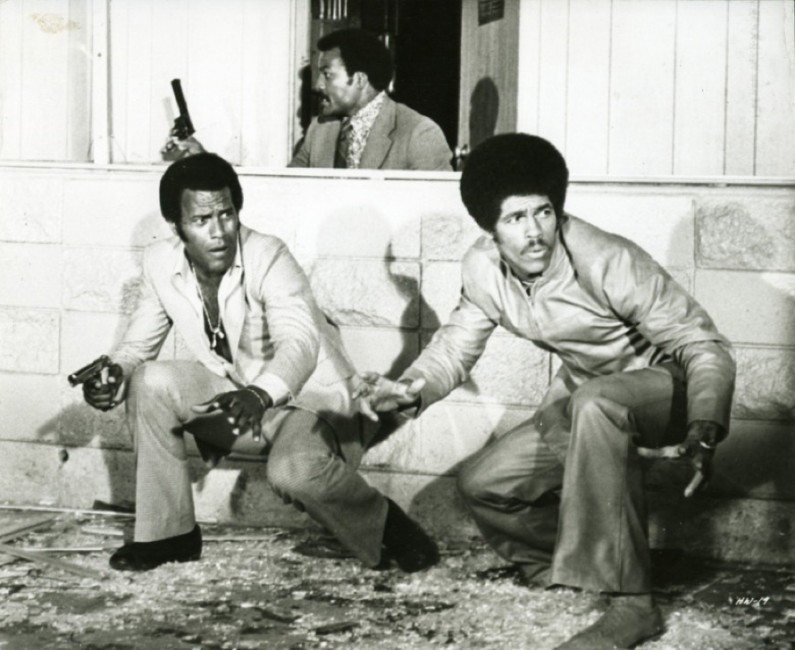EVANSTON, Ill. --- As an action star, Fred Williamson had three rules for Hollywood executives: he doesn’t die, he wins every fight, and he gets the girl in the end – if he wants her.
A professional NFL player turned actor/filmmaker/iconic director, Williamson will introduce and discuss two of his groundbreaking films in a free, two-night Block Cinema program, titled “Exploiting Who? Fred Williamson’s Revolutionary Heroes in 1970s Blaxploitation Films.” The program will take place Oct. 13 and 14 at Northwestern University’s Mary and Leigh Block Museum of Art, 40 Arts Circle Drive, Evanston.
Both films, “Three the Hard Way” (1974) and “Bucktown” (1975), star Williamson and represent the unique aesthetics of the Blaxploitation movement. After the screenings, Williamson will take part in a discussion with Northwestern School of Communication professor Harvey Young, a prominent historian of African-American theater and film.
Williamson is one of the most iconic directors and stars of 1970s black action films (commonly referred to as “Blaxploitation” -- a term Williamson and others believe was coined to discredit the films).
More than 40 years after “Three the Hard Way” and “Bucktown” were originally released, “their representation of systemic racism and oppression is depressingly just as relevant and resonant,” Block Cinema programming coordinator Justin Lintelman noted. “But these films are important for the same reason they were then: because they propagate a call to action and, as Williamson recognized, because it is refreshing to see the heroes win.”
Born in Gary, Indiana, in 1938, Williamson played football for Northwestern before moving on to play defensive back for the Pittsburgh Steelers (1960), the Oakland Raiders (1961-64) and the Kansas City Chiefs (1965-67). During his tenure with the Chiefs, Williamson became one of football's first self-promoters, earning the nickname "The Hammer" because of his on-field hits and off-screen brags. Williamson played in historic Super Bowl I before turning his attention to acting and directing in television and film.
As a public figure, Williamson was able to create and preserve a strong on-screen persona, distanced from the marginalized roles that affected minorities in Hollywood before 1970. The rise of African-American produced and directed action films in the 1970s provided opportunities to present black culture in a new way. With a revolutionary spirit, Williamson played heroes who worked outside the law to fight for the oppressed.
“Though the films simplify systemic problems of racism and corruption into ‘flesh-and-blood’ bad guys who can be fought and killed, there is something to be said for the boldness of presenting these social issues to a mainstream audience and the impact of creating black heroes who overcome this symbolic oppression,” Block Cinema’s Lintelman said.


